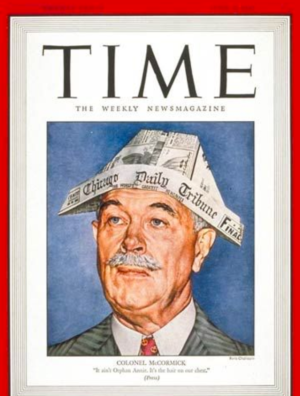
It was, in a sense, the perfect ending to the disastrous $630 million sale of Tribune Publishing to the hedge fund Alden Global Capital. After Tribune’s board voted earlier today to turn over its nine major-market dailies to the worst newspaper owner in the country, it wasn’t entirely clear that the vote was valid. And I’m guessing that the Newspaper Guild, which has been fighting the sale, will file a challenge. Elahe Izadi and Sarah Ellison of The Washington Post explain:
But participants also remained uncertain well into Friday afternoon about the potential impact of Patrick Soon-Shiong’s surprise announcement, made via a spokeswoman, that he “abstained” from the vote. The California biotech billionaire owns the Los Angeles Times — which is unaffected by the sale — and about one-quarter of Tribune shares, meaning he had enough votes to torpedo the takeover.
According to Tribune Publishing proxy filed on April 20 with the Securities and Exchange Commission, an “abstain” vote would be counted as “against” the merger. Yet it appears that Soon-Shiong ultimately did not cast his ballots in a way that would have stopped the Alden sale. Unnamed Tribune Publishing officials told the Chicago Tribune that the proxy ballots registered to Soon-Shiong were submitted without the “abstain” box checked, and that his votes were counted as “yes” for the merger.
Had he not voted at all, his silence would have been recorded as a vote “against” the merger. But ballot submitted without any boxes checked at all were understood as endorsing the board’s recommendation to approve the merger.
David Folkenflik of NPR has a comprehensive account of what went down today and what it means for the future.
There are two villains here in the looming destruction of some of our most important newspapers, including the Chicago Tribune, The Baltimore Sun and, closer to home, the Hartford Courant. One is Soon-Shiong. I realize he has his hands full with the LA Times, and I’m glad that he appears to be recommitted to that paper after rumors circulated earlier this year that he was looking to sell. But all he had to do today was vote “no,” buying more time for another bidder to emerge. Instead, Soon-Shiong will walk away with $150 million.
Become a member of Media Nation for just $5 a month
The other villain is a Swiss billionaire named Hansjörg Wyss. At one point, Baltimore hotel magnate Stewart Bainum put together a $680 million bid that was largely aimed at breaking up the chain and finding local buyers. Wyss wanted the Chicago Tribune — but reportedly decided against it once he learned that its finances were in worse shape than he’d been led to believe. He also reportedly lost interest after his advisers convinced him that, no, the Trib couldn’t be transformed into a national paper in league with The New York Times or the Post. With a net worth of $6.4 billion, though, Wyss easily could have sucked it up rather than walking away.
I’m not going to single out mega-billionaire Jeff Bezos as a villain, even though I recently argued that he should add Tribune to his ownership of the Post. It would have been nice, but there was never a hint that he had any interest.
And here’s a really terrible wrinkle. Earlier this year, Alden had agreed to buy Tribune and then sell The Baltimore Sun to Bainum, who in turn planned to donate it to a nonprofit. Bainum decided to try to buy the entire chain after concluding that Alden was trying to chisel him on the terms of the deal. Now Alden will keep all nine Tribune metros plus some pretty vital smaller papers, such as the Capital Gazette of Annapolis, Maryland.
Alden will soon control two newspaper chains. In addition to Tribune, Alden owns MediaNews Group (also known as Digital First Media), whose 100 or so papers include The Denver Post, the Orange County Register in Southern California and, in Massachusetts, The Sun of Lowell, the Sentinel & Enterprise of Fitchburg and the Boston Herald. Its papers are mere shadows of their former selves, barely able to cover the communities they purportedly serve.
If there’s a bright spot — and there is — it’s that entrepreneurial journalists move in where there is market failure. Former Denver Post journalists are now operating The Colorado Sun, a digital operation that recently acquired a chain of 24 regional newspapers around Denver. In Northern California, two former Alden journalists are now running a news co-op called The Mendocino Voice. And in Baltimore, Bainum says he’s going to investigate launching a nonprofit alternative to the Sun.
This may be the darkest day in the history of American newspapers. My hope is that, five years from now, we’ll look back and see that something good came out of it.





